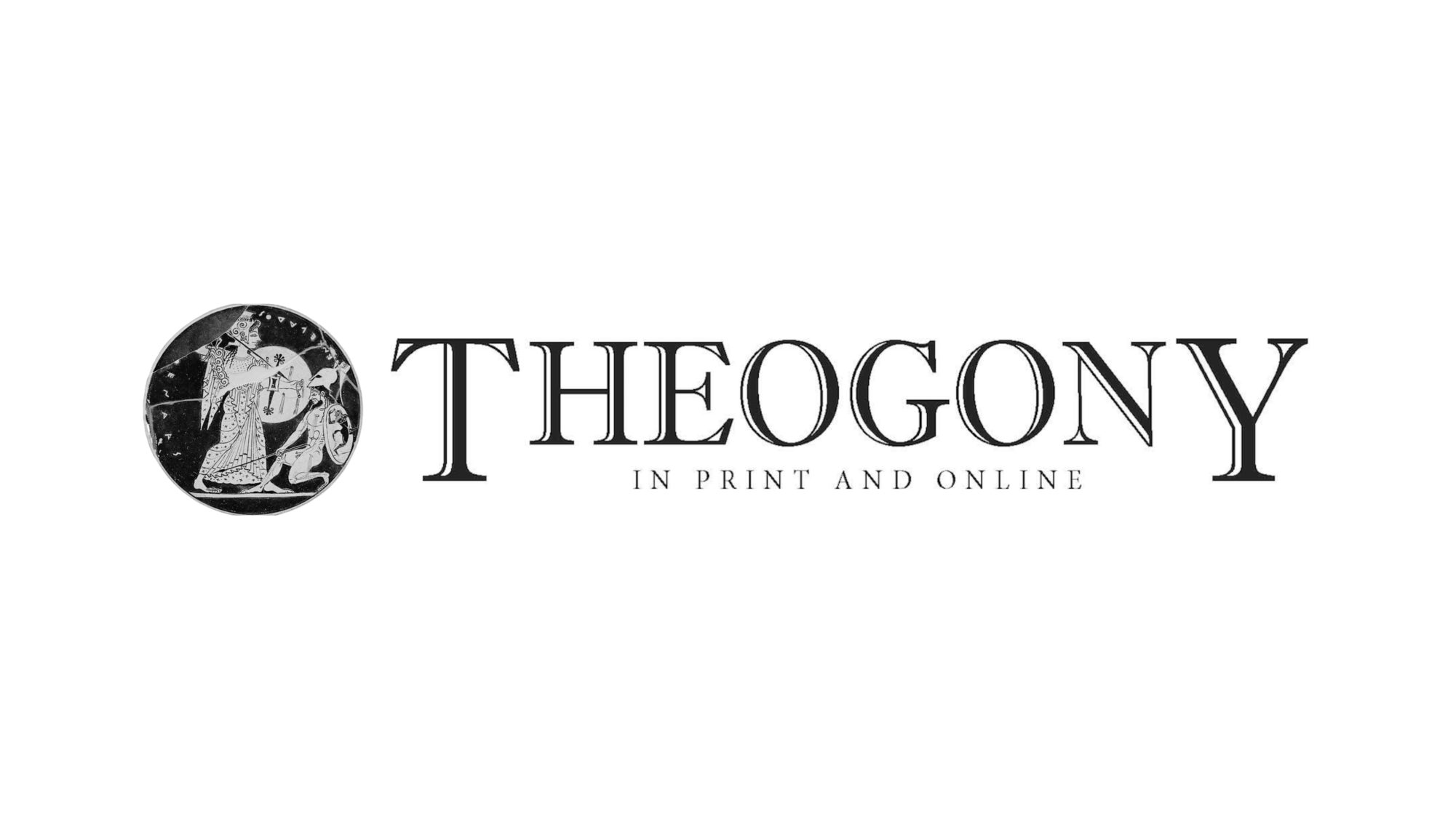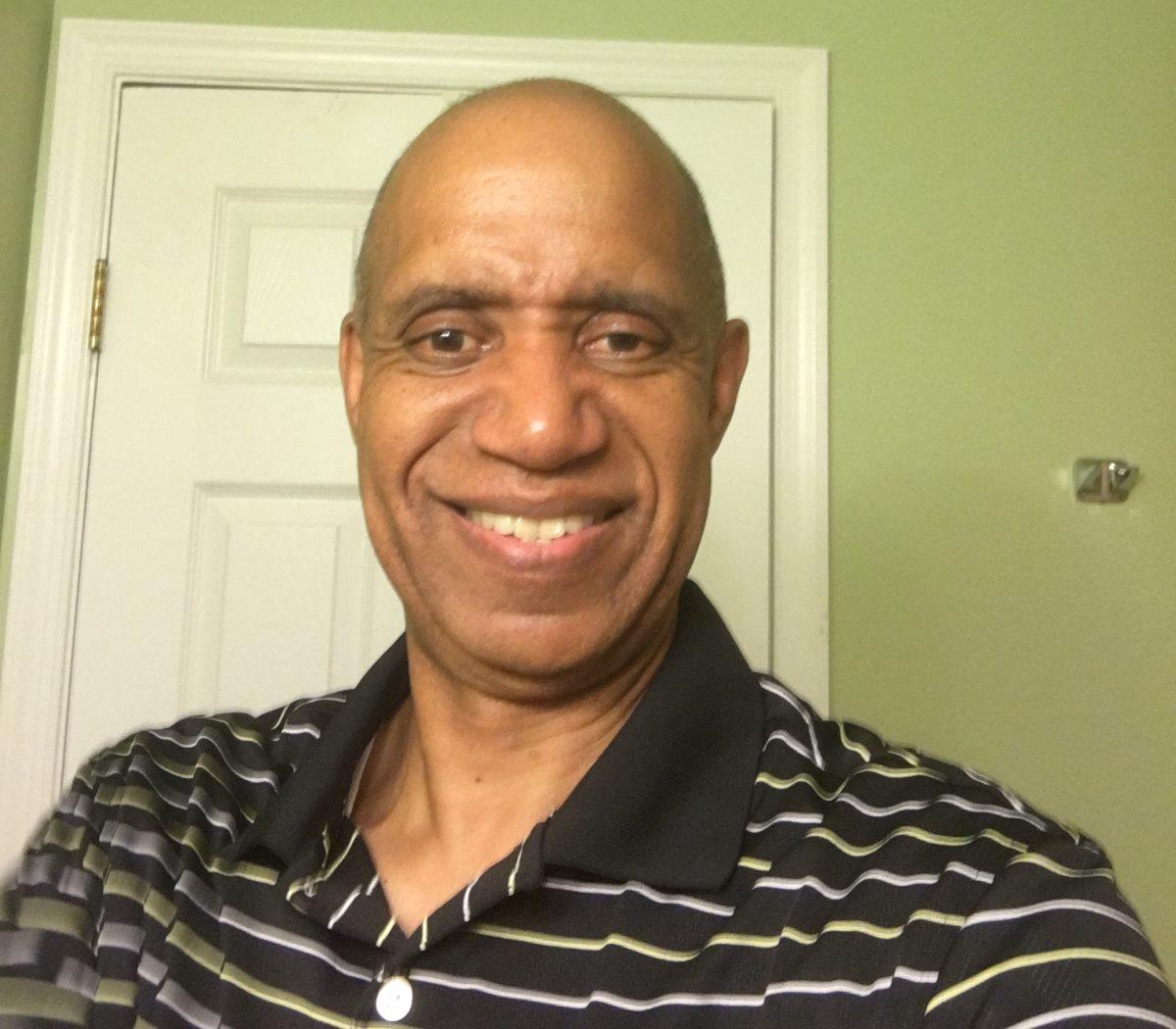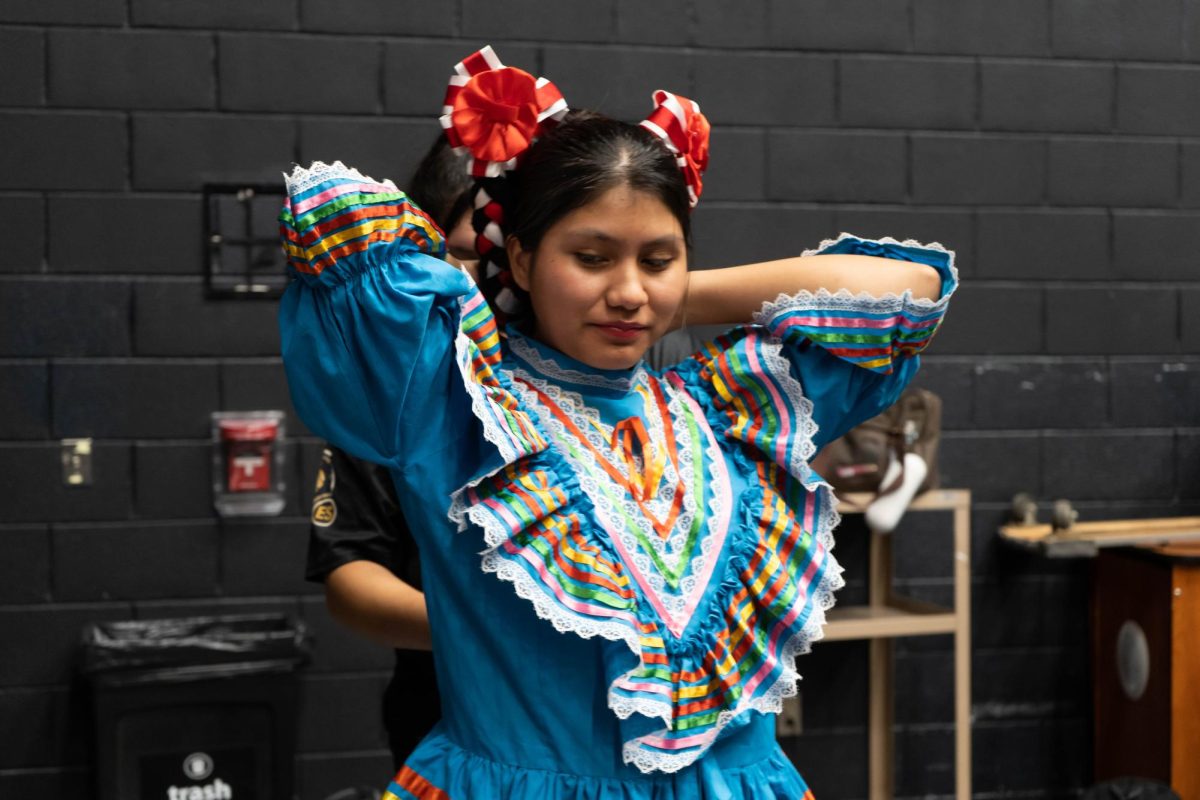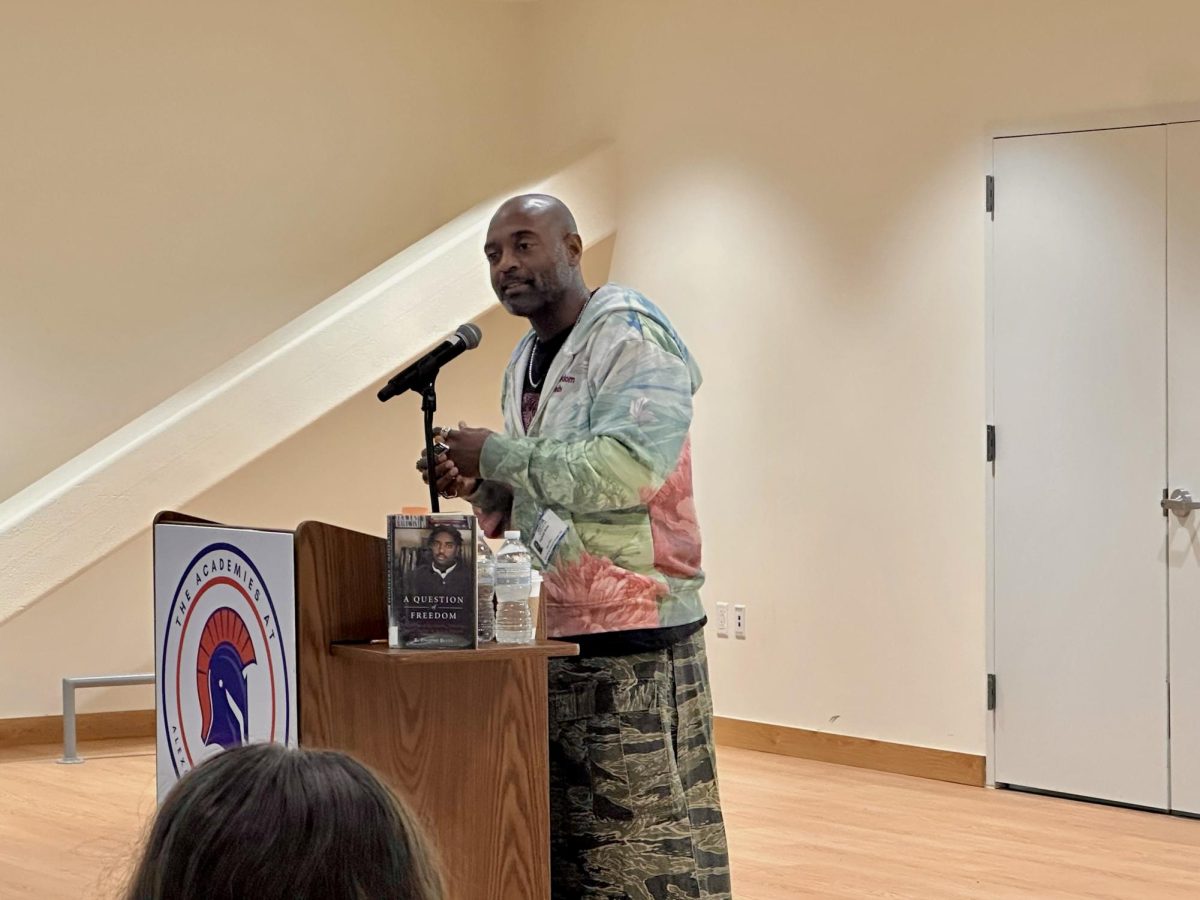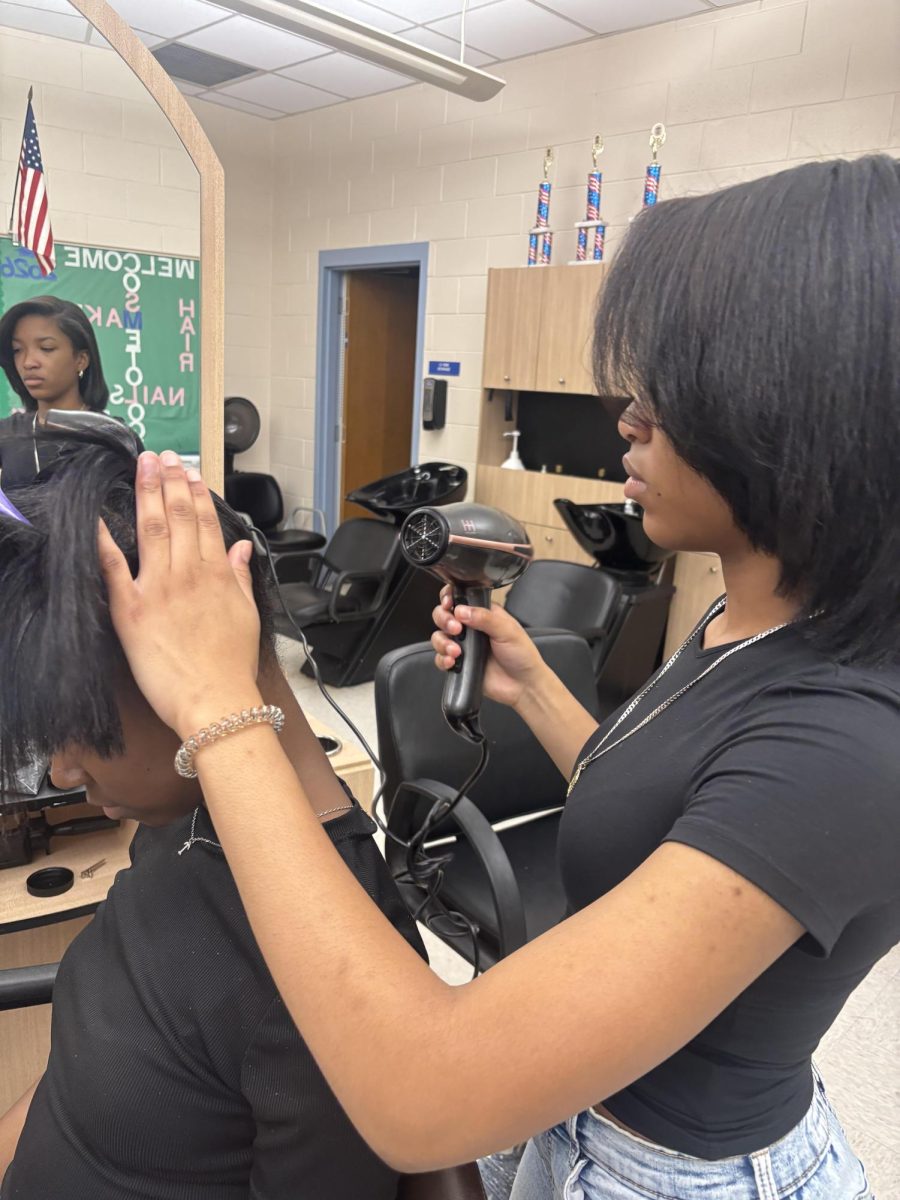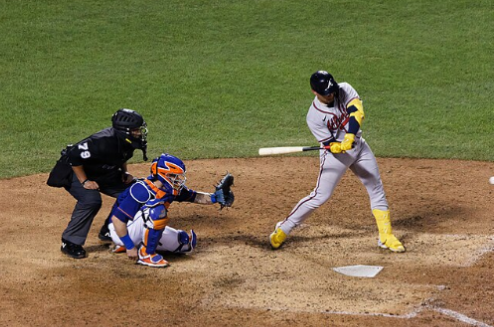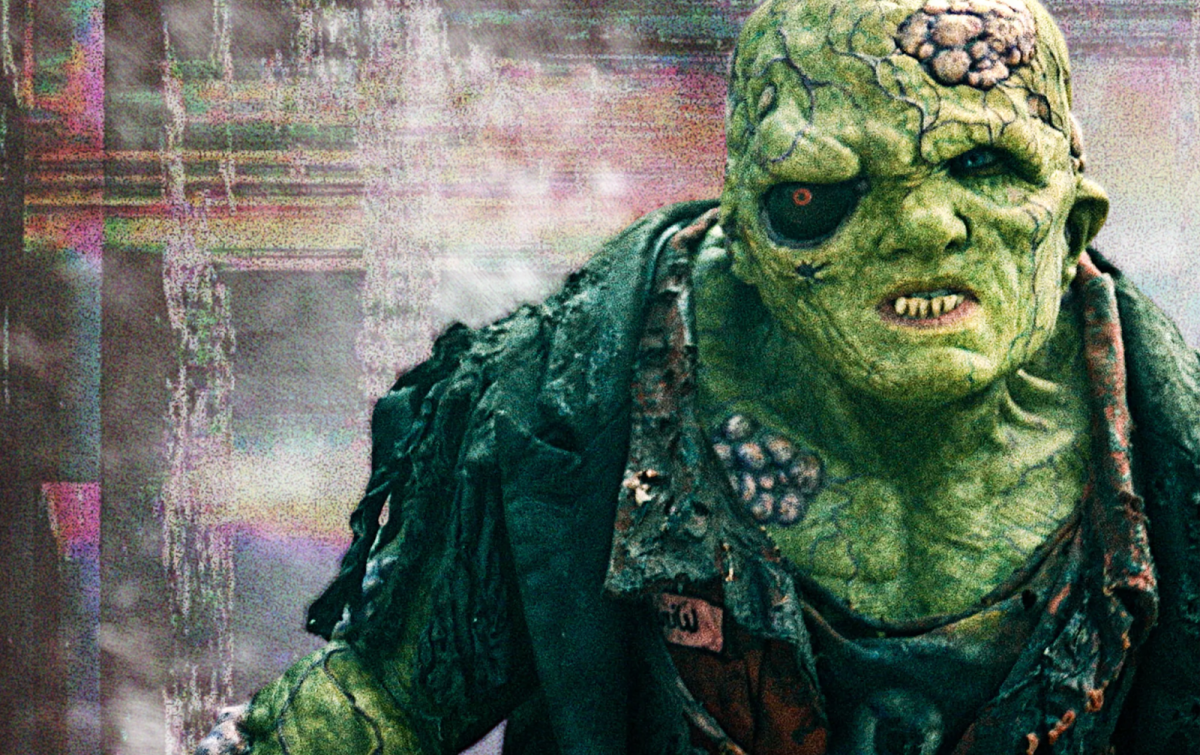For hundreds of students at the Minnie Howard campus of ACHS, Student Support Services Coordinator Kevin McNutt is a friendly face they see every day. Greeting them at the entrance with a smile, McNutt asks them about their days. What they, along with most teachers and administrators, might not know is that McNutt is a published author of two books and has lived around the world. They might have never guessed that he was the star player of George Mason University’s basketball team or that he refereed the likes of Kobe Bryant and Kevin Durant in a lengthy officiating career. The list goes on. As much as there is to know about Kevin McNutt, there is even more to learn from him.
As a child, McNutt’s father was in the military, so his family often traveled. After living around the globe, including in Japan and Holland, McNutt’s family settled in Southeast D.C. “I’ve lived around the world,” he said, “[but] I call myself a ‘DC guy’.”
It was there that McNutt fell in love with basketball. “It turned out to be my favorite sport which I was talented in,” he said. While attending St. Anthony’s Catholic School in Northeast D.C., he played as a point guard under coach and basketball Hall of Famer John Thompson.
McNutt continued to play basketball at George Mason University as a walk-on. After a monster junior season where he led the team in scoring and assists, McNutt earned a scholarship for his senior year.
Although he “wasn’t good enough to go pro,” McNutt graduated college on time in 1978. “That was the big thing,” he said. Still, he continued his love for the game after college by becoming a referee.
“I wasn’t going to be able to play pro or make money playing basketball, so I thought, ‘Why don’t I try refereeing?’,” McNutt said, adding, “I like staying in touch with the game, I like staying in shape, I like working with young people, so I started being a referee.”
Throughout 35 years of refereeing, McNutt has mostly officiated high school and Amateur Athletic Union (AAU) games alongside occasional college matches. He’s also refereed a Team USA Olympics practice and a charity match featuring a plethora of NBA players. Kobe Bryant, Kevin Durant, Allen Iverson, Julius (Dr. J) Erving, Walt Frazier and Earl Monroe are just a few of the all-time greats McNutt has officiated. “It’s been a great experience . . . I’ve been on the court with a lot of great players,” he said. “It’s been a very rewarding career in a lot of different ways.”
McNutt also stays connected to basketball through writing. He authored two books that “try to educate people on youth sports.”
The first book, Hooked on Hoops: Understanding Black Youths’ Blind Devotion to Basketball, “challenges athletes, parents, educators, the media, and the larger society to examine [black youths’] passion with basketball,” and was published in 2002. In 2015, McNutt published his second book, Playing Time: Tough Truths about AAU Basketball, Youth Sports, Parents, and Athletes. It “investigates the abuse of black basketball players by coaches, the AAU, sports companies, and even parents.”
“Both books came out of my refereeing opportunities,” he said. “Refereeing is a very interesting seat to have. You see a lot of different things from interactions with players, coaches, [and] fans.”
While being a referee, McNutt also pursued a career in sales, selling commercial office furniture for various companies. His experience as an athlete fueled his success. “It’s just like playing a sport,” he said. “You have to always try to improve, always try to reach a goal.”
McNutt stayed in the industry for over 30 years. “It can be a roller coaster ride. You always have to be looking for new business, replenishing the pipeline . . . and then the economy swings, and it can be tough,” he said. “It’s not always about how good you are. Sometimes, you have to be in the right place at the right time. When the ball comes to you, you gotta take that shot and knock it down.”
Overall, McNutt enjoyed working in sales. “I was motivated,” he said. “You set your own schedule, and you just chase a number . . . It’s like stepping up to the free throw line to make the game-winning shot. You gotta do what you gotta do . . . It’s very rewarding when you make a big sale.”
In 2018, McNutt “burned out” from being in the sales industry for so long. “It’s a tough industry to be in,” he said. After leaving sales, he started substitute teaching at the ACHS King Street campus. “My wife was a teacher at ACPS, and she said, ‘you should try subbing.’” McNutt became a long-term substitute that year and said he thoroughly enjoyed it.
His efforts as a teacher and role model were noticed by students. At the end of his year substituting, McNutt’s students presented him with a trophy for being one of their best mentors. “That was very touching,” he said. “It’s a special memory.”
After being a long-term substitute for a year, McNutt applied to be the in-school suspension coordinator at Minnie Howard. He got the job. Fast forward to 2022, when ACPS is shifting towards restorative justice, and McNutt is now Minnie Howard’s Student Support Services Coordinator.
With his position, McNutt says he’s “trying to help the young people make better decisions . . . [and] help them understand the importance of their education . . . [and] opportunity they have now.” Sometimes that can be difficult. “Students’ days are hectic and move really fast,” he said. “It’s always a challenge to make them understand and see the bigger picture.”
McNutt also coaches basketball at ACHS, and he will be coaching the freshman team in the upcoming season. “Basketball is another source of education,” he said. “I can teach a lot . . . I value the opportunity to teach young people how to play the game the right way, how to respect the game.”
As a coach, McNutt also cherishes helping players take the next step in their athletic careers. “Having been a player that earned a scholarship and had my daughter go to college on a scholarship, I can tell you: there’s nothing better for a young athlete than to continue their athletic career in college via a scholarship without their parents having to write a check to the school,” he said. “That’s a beautiful experience.”
Altogether, McNutt loves his job. “It’s been fantastic to work with and help young people,” he said. ”With the small groups and discussions we have, I learn from the students just as much as I hope they learn from me.”
As for future plans, McNutt said he has no intentions to stop working with youth. “I love working with the young people. I feel good; my health is good . . . As long as I bounce up every morning, [if] I feel like I’m making progress, health-willing, I’ll be around for a little bit.”
Portions of this interview have been edited for clarity.
